Probiotic + Prebiotic, TumFlora & Multi Essentials
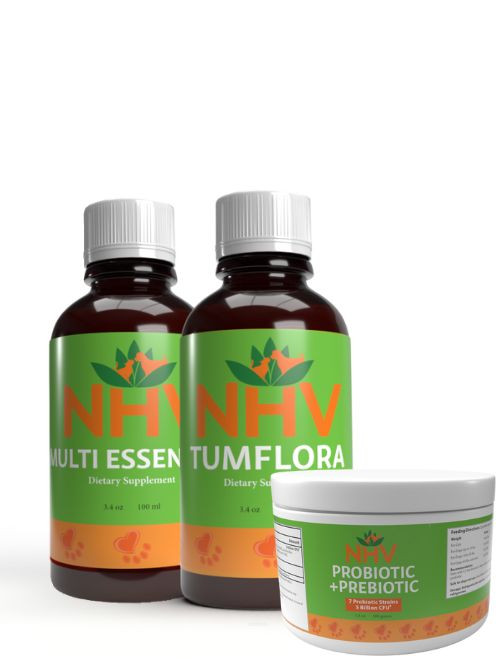
free shipping over $100 (USA & Canada)
1-877-937-4372 the pet expert hotline
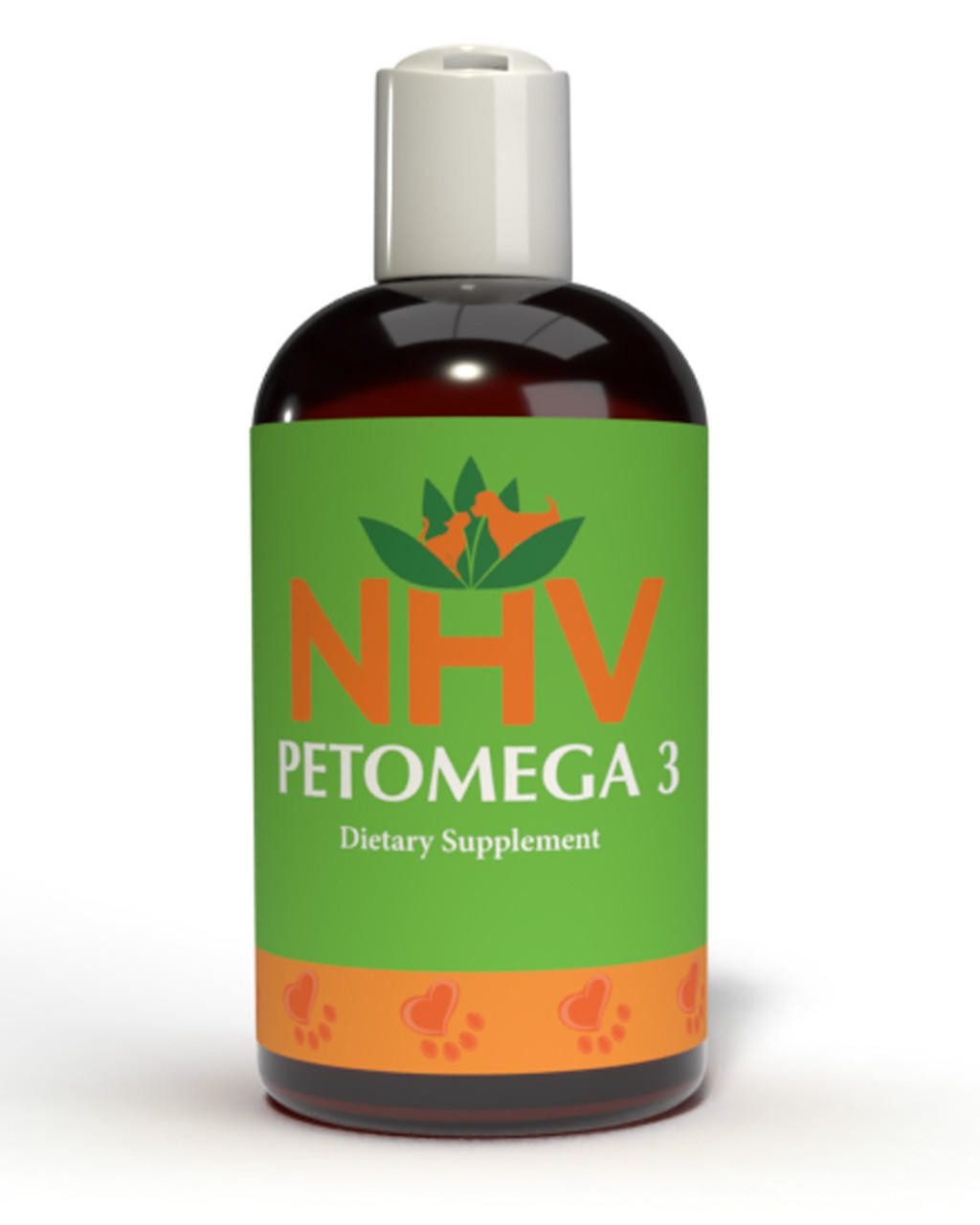

The kidneys play an important role in the bodily functions of your pets. These hardworking organs function to filter waste from the blood to produce urine, which helps to eliminate toxins from the body. They are also responsible for regulating hydration, blood pressure, red blood cell production, pH, and mineral balance. Tiny filtering units, called nephrons, work inside the kidney to act as filters. Sadly, when the kidneys aren’t functioning properly, it can lead to what’s known as kidney disease. Kidney disease can cause appetite loss and nausea in pets, but there are ways to help your pet manage these symptoms.
Kidney issues can happen for a variety of reasons
Kidney issues can happen for a variety of reasons. They can even be idiopathic, which means that there is no cause and can happen spontaneously. On the other hand, kidney disease can occur when there is not enough working tissue in the organ to maintain normal function. The causes of kidney disease in pets are broad and include medications, dehydration, age, infection, toxicity, and medical conditions. For example, if your pet ingests antifreeze, which is toxic to their system, their kidneys can take a hard hit.
Nausea and loss of appetite can accompany kidney issues. This is because there can be increased toxins in the bloodstream as the kidneys are not functioning at full capacity. Dehydration is another side effect that can cause nausea and vomiting. When your little one is nauseous, they may exhibit signs of anxiety, hypersalivation, vocalization, and lip smacking.
Other signs to watch for include:
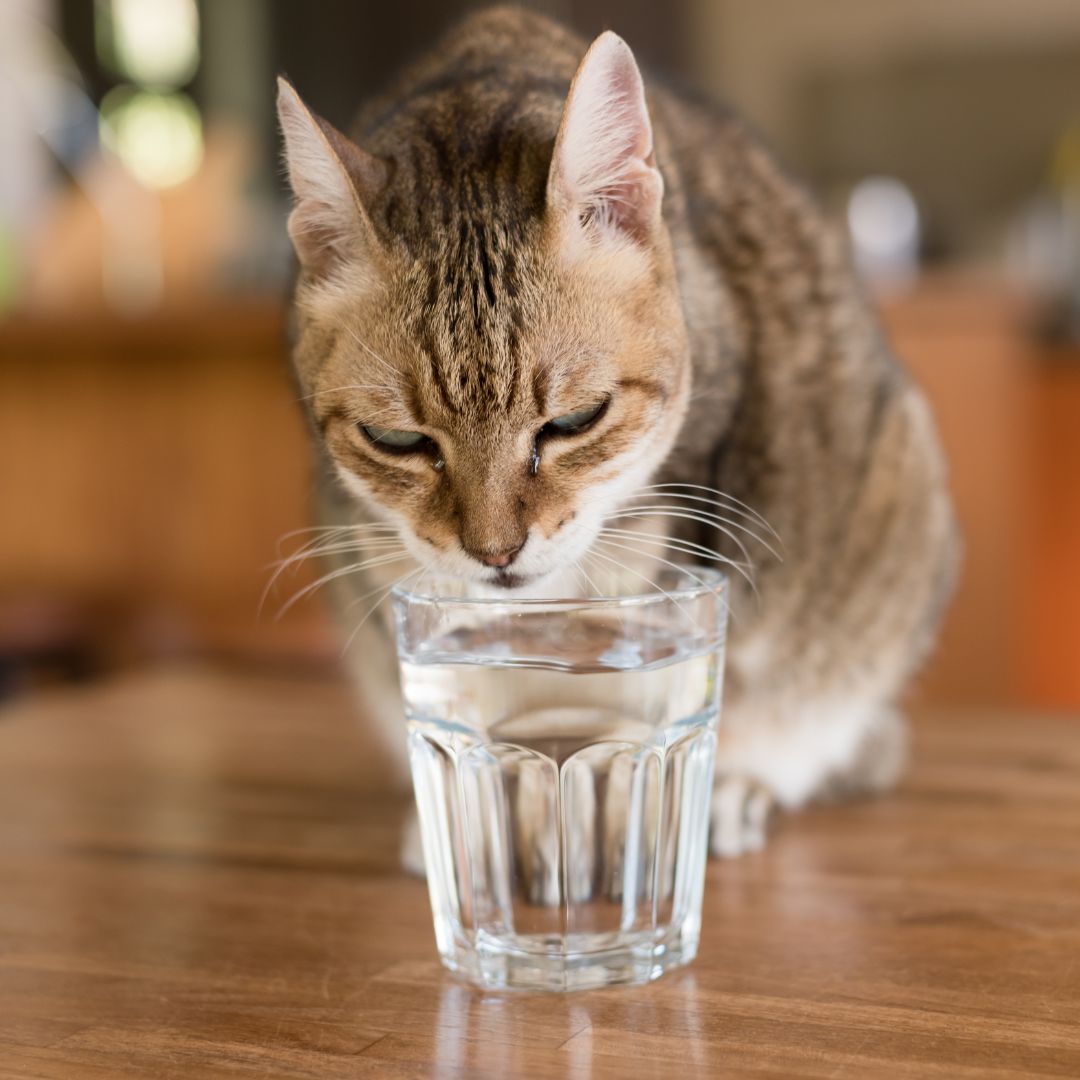
One way to help your little one with appetite and digestion is to increase hydration, as kidney disease can cause dehydration. Some good ways to increase water intake are to offer wet food, use water fountains, and set up multiple water bowls around the house. You can also try adding flavours to their water or mixing water with their food. Some pets will be more willing to eat when their food is warmed up or when warm water is added, as it can bring out the flavour and increase palatability.
Addressing nausea will also be important
Addressing nausea in pets will also be important. You can do this by balancing their electrolytes and offering small, frequent meals of bland food. When pets are nauseous, they may be extra sensitive to strong odours, so it’s important to try to neutralize this as best as you can.
If your pet is not taking to food, you can try syringe feeding them a liquid mixture. We have a guide on how to force feed a pet that isn’t eating, but always consult a vet first if they are not.
The use of herbal supplements can be beneficial to supplement your pet’s regimen.
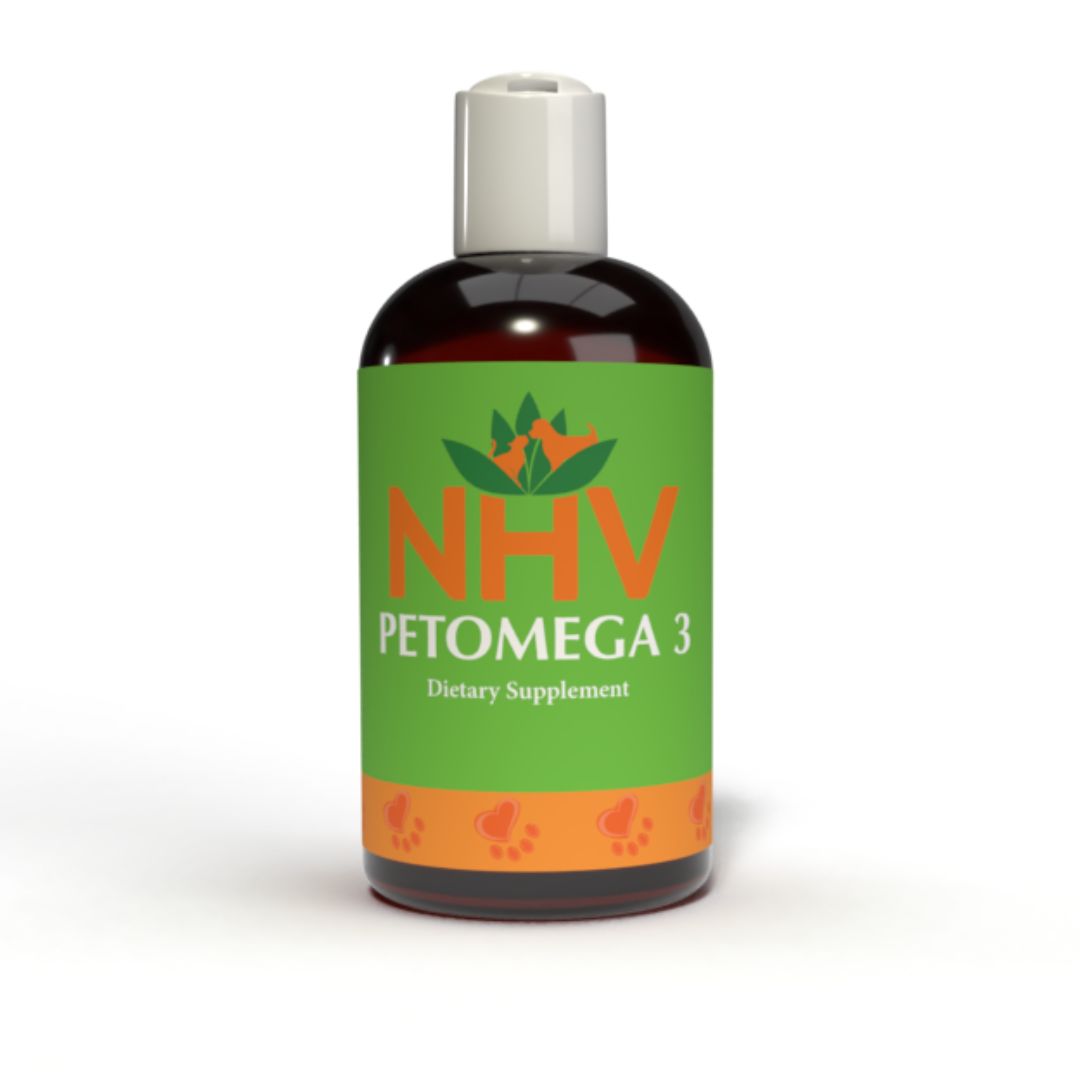
With kidney issues, it’s important to always check with your regular veterinarian to make sure that they’re getting the best treatment. Your veterinarian may prescribe a specialized diet, normally one that is low in protein, sodium, and phosphorus. Reducing protein intake may help reduce the workload on the kidneys.
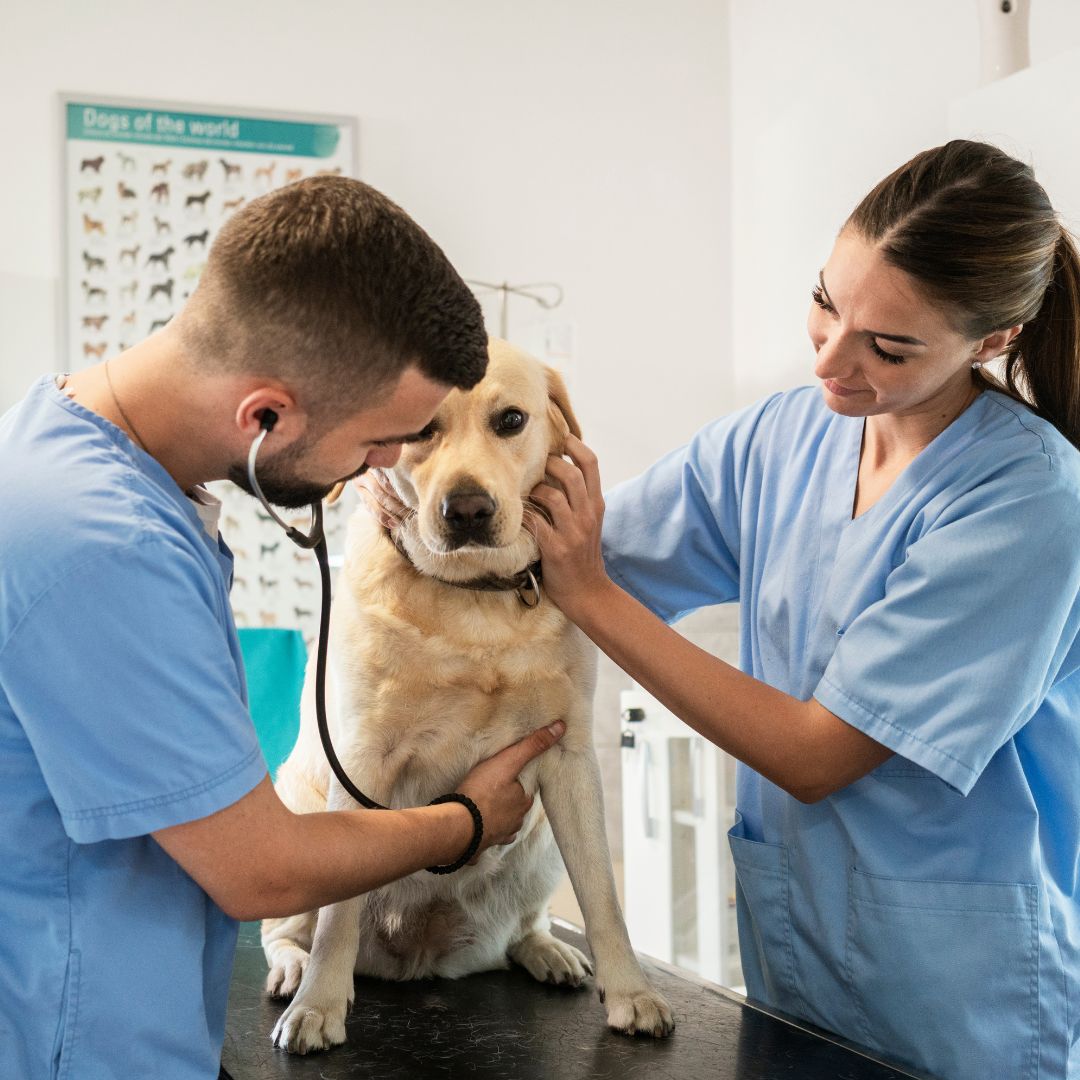
Your veterinarian may also prescribe some medication to help manage the kidney issues, nausea, and/or lack of appetite. It’s important to note that you should consult your regular veterinarian regarding the treatment plan for your little one, as they know their case the best.
Introducing natural supplements? All NHV supplements can be taken alongside veterinary medications. We just advise that you leave a gap of 30 minutes to (ideally) 2 hours between the medications and the supplements.
Caring for a pet with kidney issues often requires a holistic and proactive approach. That’s why it is important to address each symptom, whether it is appetite loss or nausea in pets.
We’re committed to supporting you and your furbabies on their health journeys and are here to help in any way we can. Please don’t hesitate to reach out with any questions, as our dedicated team of Pet Experts would be happy to help create the perfect regimen to best suit the needs of your little one.
Probiotic + Prebiotic, TumFlora & Multi Essentials

Probiotic + Prebiotic, TumFlora & Multi Essentials
bundle and save with pet expert kits
3 month supply for a small to medium size pet
Witnessing your pet struggle with digestive issues can be heartbreaking. NHV Digestive Wellness Super Support Kit offers gentle, vet-formulated gut health supplements for dogs and cats to promote a happy tummy and overall well-being.

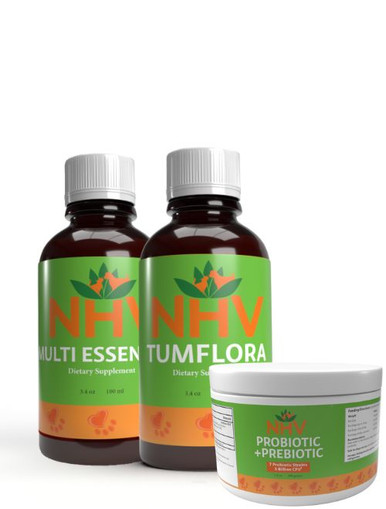
Witnessing your pet struggle with digestive issues can be heartbreaking. NHV Digestive Wellness Super Support Kit offers gentle, vet-formulated gut health supplements for dogs and cats to promote a happy tummy and overall well-being.

We understand how distressing it can be to see your little one experiencing digestive discomfort. From upset tummies to frustrating vomiting or diarrhea, these issues can significantly impact your furkid’s quality of life. It can be very beneficial to support their digestive system with gut health supplements for dogs and cats.
At NHV, we believe in holistic pet wellness. That's why our Pet Experts bundled NHV Probiotic + Prebiotic, TumFlora, and Multi Essentials in our Digestive Wellness Super Support Kit – designed to help restore gut balance, help relieve digestive discomfort, and promote overall cat and dog gut health. All our supplements are 100% natural and tested by a third-party lab. So you can rest assured that they are safe for your little one to consume.
The gastrointestinal (GI) tract plays a critical role in digestion, nutrient absorption, and immune function in furkids. However, various factors can disrupt this delicate system, leading to a range of uncomfortable symptoms. Here are some common ones:
Many gut problems stem from dysbiosis, an imbalance of good and bad bacteria in the gut microbiome.
Building a strong digestive system for them is important to protect your little one from all these conditions.
The supplements in our Digestive Wellness Super Support kit are all human-grade products manufactured in a GMP-certified and FDA-approved facility.
At NHV Natural Pet Products, our top priority is the well-being of your beloved furkids. That's why we have a dedicated team of Pet Experts ready to help you and recommend the best gut health supplements for dogs and cats. If you have any questions or concerns, feel free to contact an NHV expert.
Order NHV Digestive Wellness Super Support Kit today to build a strong gut in your pet!
All NHV supplements are made with the finest quality organic or ethically harvested herbs. We use non-GMO vegetable glycerin as our base. NHV products are full -spectrum extracts.
Probiotic + Prebiotic:
Probiotics:
Prebiotics:
Inactive Ingredients:
TumFlora:
Multi Essentials:
Select your pet's weight to determine the correct dose.
To be taken twice daily. Determine your pet’s weight and then use the easy chart below to determine the correct dose. This is the minimum dosage.
Pet's Weight Dosage
0 - 15 lb = 0.5 ml
16 - 30 lb = 1.0 ml
31 - 45 lb = 1.5 ml
46 - 60 lb = 2.0 ml
61 - 75 lb = 2.5 ml
Over 75 lb = 3.0 ml
For small animals (rabbits, ferrets), avians and reptiles use 1 drop for every 2 lb of body weight.
How to Administer
Shake well before use. The easiest method is to use the dropper provided and place the drops into your pet’s food or favorite treat. You can also use the dropper and squirt directly into the pet’s mouth. Some pets can be finicky, if this occurs consider hiding the drops in foods most pet’s love such as fish, chicken or yogurt or a favorite treat. If your pet only eats dry food then soak a few kibbles at feeding time.
For Best Results
Herbal dietary supplements are beneficial to the health and well-being of your pet and are safe for long-term use. Every pet responds to natural herbal supplements differently, therefore it is important to be consistent and administer the product daily. Supplements generally take two to four weeks to take effect, however this will vary from one animal to the next.
Product Storage
All NHV Natural Pet Products are pure herbal extracts and contain no artificial additives, preservatives or coloring. Shelf life after opening is 6 months and must be refrigerated after opening.
Cautions and Contraindications
Do not use in pregnant or nursing animals.
All information provided by NHV Natural Pet Products is for educational purposes only.
We understand how distressing it can be to see your little one experiencing digestive discomfort. From upset tummies to frustrating vomiting or diarrhea, these issues can significantly impact your furkid’s quality of life. It can be very beneficial to support their digestive system with gut health supplements for dogs and cats.
At NHV, we believe in holistic pet wellness. That's why our Pet Experts bundled NHV Probiotic + Prebiotic, TumFlora, and Multi Essentials in our Digestive Wellness Super Support Kit – designed to help restore gut balance, help relieve digestive discomfort, and promote overall cat and dog gut health. All our supplements are 100% natural and tested by a third-party lab. So you can rest assured that they are safe for your little one to consume.
The gastrointestinal (GI) tract plays a critical role in digestion, nutrient absorption, and immune function in furkids. However, various factors can disrupt this delicate system, leading to a range of uncomfortable symptoms. Here are some common ones:
Many gut problems stem from dysbiosis, an imbalance of good and bad bacteria in the gut microbiome.
Building a strong digestive system for them is important to protect your little one from all these conditions.
The supplements in our Digestive Wellness Super Support kit are all human-grade products manufactured in a GMP-certified and FDA-approved facility.
At NHV Natural Pet Products, our top priority is the well-being of your beloved furkids. That's why we have a dedicated team of Pet Experts ready to help you and recommend the best gut health supplements for dogs and cats. If you have any questions or concerns, feel free to contact an NHV expert.
Order NHV Digestive Wellness Super Support Kit today to build a strong gut in your pet!
All NHV supplements are made with the finest quality organic or ethically harvested herbs. We use non-GMO vegetable glycerin as our base. NHV products are full -spectrum extracts.
Probiotic + Prebiotic:
Probiotics:
Prebiotics:
Inactive Ingredients:
TumFlora:
Multi Essentials:
Select your pet's weight to determine the correct dose.
To be taken twice daily. Determine your pet’s weight and then use the easy chart below to determine the correct dose. This is the minimum dosage.
Pet's Weight Dosage
0 - 15 lb = 0.5 ml
16 - 30 lb = 1.0 ml
31 - 45 lb = 1.5 ml
46 - 60 lb = 2.0 ml
61 - 75 lb = 2.5 ml
Over 75 lb = 3.0 ml
For small animals (rabbits, ferrets), avians and reptiles use 1 drop for every 2 lb of body weight.
How to Administer
Shake well before use. The easiest method is to use the dropper provided and place the drops into your pet’s food or favorite treat. You can also use the dropper and squirt directly into the pet’s mouth. Some pets can be finicky, if this occurs consider hiding the drops in foods most pet’s love such as fish, chicken or yogurt or a favorite treat. If your pet only eats dry food then soak a few kibbles at feeding time.
For Best Results
Herbal dietary supplements are beneficial to the health and well-being of your pet and are safe for long-term use. Every pet responds to natural herbal supplements differently, therefore it is important to be consistent and administer the product daily. Supplements generally take two to four weeks to take effect, however this will vary from one animal to the next.
Product Storage
All NHV Natural Pet Products are pure herbal extracts and contain no artificial additives, preservatives or coloring. Shelf life after opening is 6 months and must be refrigerated after opening.
Cautions and Contraindications
Do not use in pregnant or nursing animals.
All information provided by NHV Natural Pet Products is for educational purposes only.
kidney & bladder support
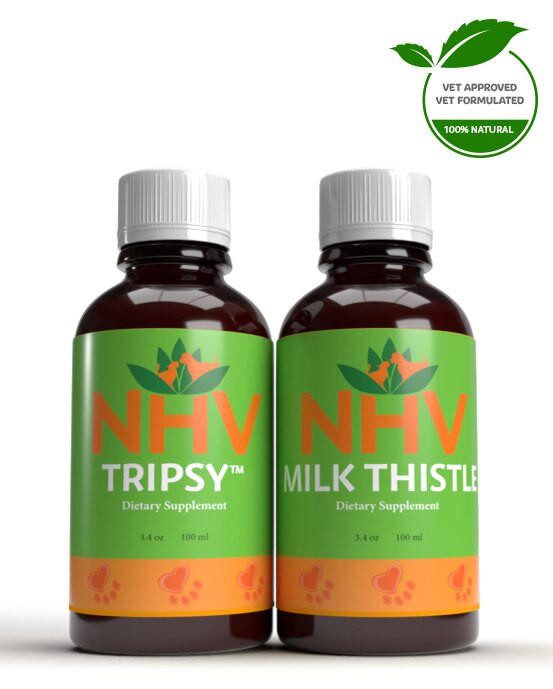
Tripsy & Milk Thistle
bundle and save with pet expert kits
3 month supply for a small to medium size pet.
If your pet has been diagnosed with Chronic Renal Failure in cats or dogs, it is important to support the kidneys, bladder, and liver. This natural herbal support kit for CRF:

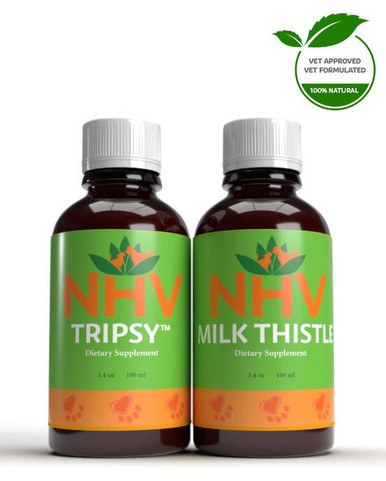
If your pet has been diagnosed with Chronic Renal Failure in cats or dogs, it is important to support the kidneys, bladder, and liver. This natural herbal support kit for CRF:

Chronic kidney failure or chronic renal failure in cats and dogs are major causes of illness and death in senior pets. Chronic kidney or renal failure can be caused by a diet heavy in processed food, as well as untreated dental infections which cause oral bacteria to travel throughout the body and cause liver, heart, or kidney infections.
A functioning urinary system, which includes the kidneys, ureters, bladder, and urethra is vital to your cat or dog’s well-being since it helps to:
The combination of Tripsy and Milk Thistle will help aid your dog or cat with chronic renal failure by helping to inhibit further bladder infections, flushing kidney stones, and helping alleviate symptoms of uncomfortable urination. As toxins build up in the body, Milk Thistle will aid in strengthening the liver, which will aid with removing toxins from the body.
See your vet if you observe the following symptoms of chronic renal failure in your cat or dog:
With proper support, which includes diet, a pet with CRF can live a relatively comfortable life for years.
Learn more about Chronic Renal Failure on our Vet Talks blog.
See how pets like Chibi the senior cat, Blue the dog live with CRF.
Tripsy
Stone Root – Acts as a tonic for the capillaries and prevents the formation of kidney calculi.
Parsley Piert – Aids digestion. Also used to aid fever, kidney stones, bladder stones, and fluid retention.
Wild Hydrangea – A discomfort reliever that increases the flow of urine and eliminates swelling and fluid retention.
Gravel Root – Restores and cleanses the genitourinary (reproductive and urinary) organs.
Echinacea Purpurea – Contains strong immune-stimulating properties.
Marshmallow – An anti-inflammatory that controls bacterial infections and soothes and softens irritated tissues.
Oregon Grape – Helps relieve indigestion and malabsorption. It also has antibiotic and immunostimulatory properties.
Milk Thistle:
Select your pet's weight to determine the correct dose.
To be taken twice daily. Determine your pet’s weight and then use the easy chart below to determine the correct dose. This is the minimum dosage. Dosage can be safely doubled. All NHV supplements are safe to give together.
Pet's Weight Dosage
0 - 15 lb = 0.5 ml
16 - 30 lb = 1.0 ml
31 - 45 lb = 1.5 ml
46 - 60 lb = 2.0 ml
61 - 75 lb = 2.5 ml
Over 75 lb = 3.0 ml
How to Administer
Shake well before use. The easiest method is to use the dropper provided and place the drops into your pet’s food or favorite treat. You can also use the dropper and squirt directly into the pet’s mouth.
Some pets can be finicky. If this occurs, consider hiding the drops in foods most pets love, such as fish, chicken, yogurt, or a favorite treat. If your pet only eats dry food, then soak a few kibbles at feeding time.
For Best Results
Herbal dietary supplements are beneficial to the health and well-being of your pet and are safe for long-term use. Every pet responds to natural herbal supplements differently. Therefore, it is important to be consistent and administer the product daily. Supplements generally take two to four weeks to take effect; however, the interval will vary from one animal to the next.
Product Storage
All NHV Natural Pet Products are pure herbal extracts and contain no artificial additives, preservatives or coloring. Shelf life after opening is six months and products must be refrigerated after opening.
Cautions and Contraindications
Do not use Milk Thistle in pregnant or nursing animals. Speak to your vet before using our products. A second visit is recommended if your pet’s condition does not improve or deteriorates after continued use of the supplements.
All information provided by NHV Natural Pet Products is for educational purposes only.
Chronic kidney failure or chronic renal failure in cats and dogs are major causes of illness and death in senior pets. Chronic kidney or renal failure can be caused by a diet heavy in processed food, as well as untreated dental infections which cause oral bacteria to travel throughout the body and cause liver, heart, or kidney infections.
A functioning urinary system, which includes the kidneys, ureters, bladder, and urethra is vital to your cat or dog’s well-being since it helps to:
The combination of Tripsy and Milk Thistle will help aid your dog or cat with chronic renal failure by helping to inhibit further bladder infections, flushing kidney stones, and helping alleviate symptoms of uncomfortable urination. As toxins build up in the body, Milk Thistle will aid in strengthening the liver, which will aid with removing toxins from the body.
See your vet if you observe the following symptoms of chronic renal failure in your cat or dog:
With proper support, which includes diet, a pet with CRF can live a relatively comfortable life for years.
Learn more about Chronic Renal Failure on our Vet Talks blog.
See how pets like Chibi the senior cat, Blue the dog live with CRF.
Tripsy
Stone Root – Acts as a tonic for the capillaries and prevents the formation of kidney calculi.
Parsley Piert – Aids digestion. Also used to aid fever, kidney stones, bladder stones, and fluid retention.
Wild Hydrangea – A discomfort reliever that increases the flow of urine and eliminates swelling and fluid retention.
Gravel Root – Restores and cleanses the genitourinary (reproductive and urinary) organs.
Echinacea Purpurea – Contains strong immune-stimulating properties.
Marshmallow – An anti-inflammatory that controls bacterial infections and soothes and softens irritated tissues.
Oregon Grape – Helps relieve indigestion and malabsorption. It also has antibiotic and immunostimulatory properties.
Milk Thistle:
Select your pet's weight to determine the correct dose.
To be taken twice daily. Determine your pet’s weight and then use the easy chart below to determine the correct dose. This is the minimum dosage. Dosage can be safely doubled. All NHV supplements are safe to give together.
Pet's Weight Dosage
0 - 15 lb = 0.5 ml
16 - 30 lb = 1.0 ml
31 - 45 lb = 1.5 ml
46 - 60 lb = 2.0 ml
61 - 75 lb = 2.5 ml
Over 75 lb = 3.0 ml
How to Administer
Shake well before use. The easiest method is to use the dropper provided and place the drops into your pet’s food or favorite treat. You can also use the dropper and squirt directly into the pet’s mouth.
Some pets can be finicky. If this occurs, consider hiding the drops in foods most pets love, such as fish, chicken, yogurt, or a favorite treat. If your pet only eats dry food, then soak a few kibbles at feeding time.
For Best Results
Herbal dietary supplements are beneficial to the health and well-being of your pet and are safe for long-term use. Every pet responds to natural herbal supplements differently. Therefore, it is important to be consistent and administer the product daily. Supplements generally take two to four weeks to take effect; however, the interval will vary from one animal to the next.
Product Storage
All NHV Natural Pet Products are pure herbal extracts and contain no artificial additives, preservatives or coloring. Shelf life after opening is six months and products must be refrigerated after opening.
Cautions and Contraindications
Do not use Milk Thistle in pregnant or nursing animals. Speak to your vet before using our products. A second visit is recommended if your pet’s condition does not improve or deteriorates after continued use of the supplements.
All information provided by NHV Natural Pet Products is for educational purposes only.
Published: May 30, 2025